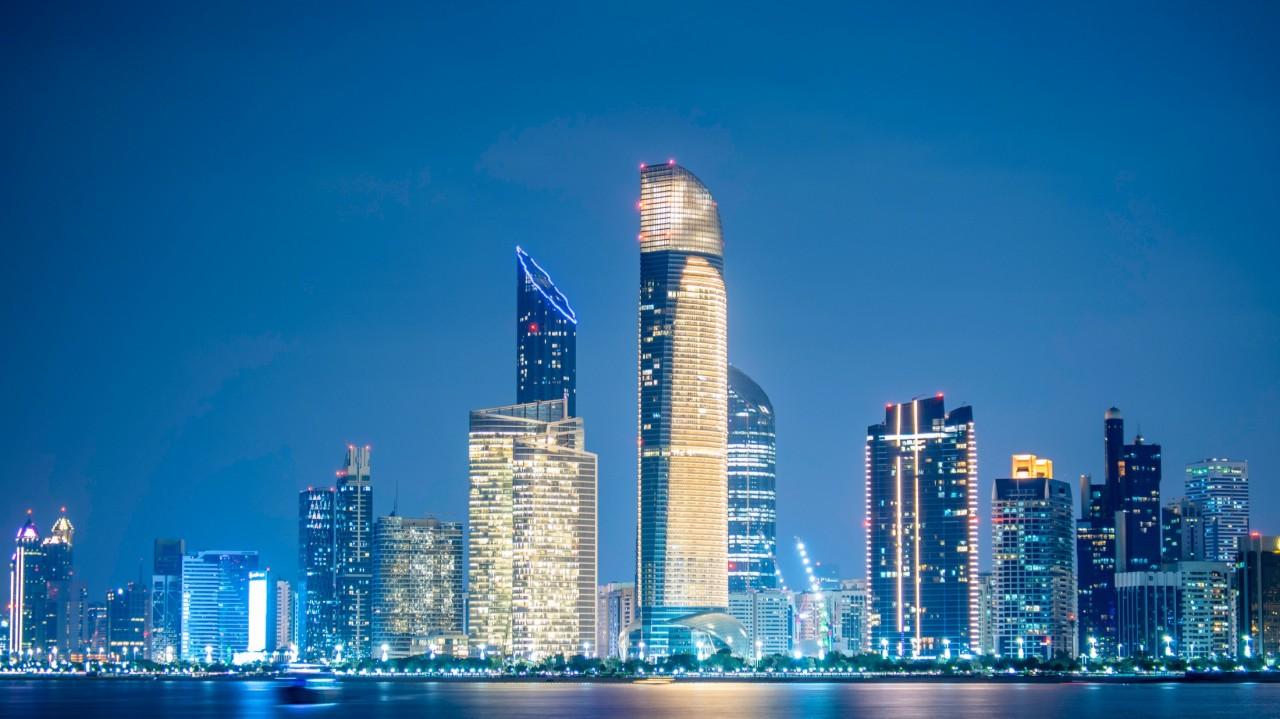Dusted off an anecdote about time and money from 2016 (see below), back when the western world seemed stuck in secular stagnation. Before Brexit, Trump, trade wars, Covid, government stimmies, runaway deficits, inflation, war in Ukraine, the Middle East, the Cold War with China. Back before AI, Nvidia, the IRA, US equity outperformance, America’s swing back to Trump. All signs of an imbalanced global system groping for a new equilibrium.
Headed to the Middle East. See you next Sunday with full wknd notes. All the very best, E
Week-in-Review: Mon: Trump says he will hit China, Canada and Mexico with new 25% tariffs. US special counsel Smith to drop criminal cases against Donald Trump. Centre-left narrowly wins presidency in Uruguay. Violent protests in Pakistan. German IFO Sentiment Idx 85.7 (86.1), Chicago Fed Nat. Activity Diffusion Idx -0.24 (-0.21p), Singapore CPI 1.4% (1.85%e), S&P 0.3%; Tue: Israeli and Lebanese leaders accept a US-brokered ceasefire deal. Russia confirms Ukrainian strikes air defense missile divisions in Kursk. UK dispatches anti-drone specialists after drones spotted near US bases in Britain. Fed FOMC Minutes suggest policymakers no longer see an urgent need to rapidly reach a “neutral” level of interest rates. Biden proposes massive expansion of US weight-loss drug coverage. US New home sales 610k (725k e), US Cons. Conf. 111.7 (111.8e), Richmond Fed Mgt Idx -14 (-10.5e), S&P +0.6%; Wed: French government on the brink of collapse. Mexico’s president says she had an ‘excellent’ call with Trump. Three Americans detained in China are released in prisoner swap. Iran ‘welcomes’ Israel-Lebanon ceasefire deal. US imposes sanctions on 21 top Venezuela officials over disputed election. US GDP ann QoQ 2.8% as exp / Core PCE 2.8% as exp / Cons. spending 0.4% as exp / Durable goods orders 0.2% (0.5%e) / Initial jobless claims 213k (215k e) / Cont claims 1907k (1892k e), ISM Chicago PMI 40.2 (44.7e). RBA interest rates 4.25% as exp, Russia Unemp rate 2.3% (2.5%), S&P -0.4%; Thur: French 10y yields exceed Greece’s amid budget concerns. Putin hits Ukrainian energy infrastructure and threatens ‘decision-making centers in Kyiv’ with experimental hypersonic missiles. OPEC+ delays production cut meeting. Japanese parliament begins talks on supplementary budget, critical to funding PM Ishiba’s $250bn stimulus package. EU Cons. Sent. Idx -13.7 as exp, Tokyo Core CPI 2.2% (2.1%e), Japan Ret. Sales YoY +1.6% (0.5%p), Spain CPI 2.4% (2.3%e), S&P closed; Fri: PM Barnier warns Le Pen’s party against sending France ‘to the wall’ over budget ultimatum. Australia enacts social media ban for children under 16. UK MPs back bill to legalize assisted dying. India’s economic growth decelerates to its slowest rate in seven quarters. India GDP 5.4% (6.5%e), Canada GDP 1% as exp, Eurozone Flash Core CPI 2.7% (2.8e), Turkey GDP 2.1% (2.5%p), France CPI 1.7% as exp, UK mortg. approvals 68.3k (65.5ke), S&P 0.6%
Weekly Close: S&P 500 +1.1% and VIX -1.73 at +13.51. Nikkei -0.2%, Shanghai +1.8%, Euro Stoxx +0.4%, Bovespa -2.7%, MSCI World +1.2%, and MSCI Emerging -0.8%. USD rose +2.8% vs Brazil, +2.1% vs Russia, +0.4% vs Turkey, +0.2% vs Canada, +0.1% vs Bitcoin, and flat vs India. USD fell -8.8% vs Ethereum, -3.2% vs Yen, -1.6% vs Sterling, -1.5% vs Euro, -1.3% vs Sweden, -1.3% vs Chile, -0.3% vs South Africa, -0.3% vs Mexico, -0.2% vs Indonesia, -0.2% vs Australia, and flat vs China. Gold -2.1%, Silver -2.1%, Oil -4.5%, Copper +0.2%, Iron Ore +0.8%, Corn -0.5%. 10yr Inflation Breakevens (EU -5bps at 1.78%, US -9bps at 2.27%, JP -1bps at 1.38%, and UK -2bps at 3.51%). 2yr Notes -22bps at 4.15% and 10yr Notes -23bps at 4.17%.
Moves Since Nov 4th (pre-election): S&P 500 +5.6% and VIX -8.47 at +13.51. Nikkei +0.4%, Shanghai +0.5%, Euro Stoxx +0.2%, Bovespa -3.7%, MSCI World +4.2%, and MSCI Emerging -4.5%. USD rose +7.7% vs Russia, +3.2% vs Brazil, +3.0% vs South Africa, +2.8% vs Euro, +2.1% vs China, +2.0% vs Chile, +1.7% vs Sterling, +1.6% vs Sweden, +1.3% vs Mexico, +1.1% vs Australia, +1.0% vs Turkey, +0.7% vs Canada, +0.6% vs Indonesia, and +0.5% vs India. USD fell -32.7% vs Ethereum, -30.4% vs Bitcoin, and -1.6% vs Yen. Gold -3.2%, Silver -5.9%, Oil -4.3%, Copper -7.5%, Iron Ore +2.0%, Corn +0.7%. 10yr Inflation Breakevens (EU -7bps at 1.78%, US -1bp at 2.27%, JP +12bps at 1.38%, and UK -7bps at 3.51%). 2yr Notes -1bp at 4.15% and 10yr Notes -12bps at 4.17%.
2024 Year-to-Date Equity Index Close (high to low): Argentina +94.4% priced in US dollars (+142.9% priced in pesos), NASDAQ +28% priced in US dollars, S&P 500 +26.5% priced in US dollars, MSCI World +20.2% priced in US dollars, Russell +20.1% priced in US dollars, Israel +19.6% priced in US dollars (+21.6% in shekels), Taiwan +16.8% (+24.2%), Canada +15.5% (+22.4%), HK +14.4% (+13.9%), Hungary +13.7% (+28.6%), Singapore +13.7% (+15.4%), Malaysia +13.1% (+9.6%), Germany +11.9% (+17.2%), Czech Republic +11.1% (+19%), Spain +10.1% (+15.2%), Turkey +10% (+29.2%), China +9.6% (+11.8%), South Africa +9.4% (+7.9%), India +9.3% (+11%), Belgium +8.9% (+14%), Japan +7.5% (+14.2%), Netherlands +7% (+12.1%), UK +6.8% (+7.2%), Australia +6% (+11.1%), Italy +5.2% (+10.1%), Ireland +4.8% (+9.7%), Norway +4.4% (+14%), New Zealand +3.6% (+11%), Greece +2.9% (+7.8%), Euro Stoxx 50 +1.5% (+6.3%), Colombia +1.2% (+16.5%), Switzerland +0.6% (+5.6%), Thailand +0.5% (+0.8%), Denmark -0.2% (+4.5%), Austria -1.6% (+3%), Poland -2.2% (+1.2%), Saudi Arabia -2.9% (-2.7%), Philippines -3.1% (+2.5%), Sweden -3.4% (+4.9%), UAE -3.6% (-3.6%), Chile -4% (+6.1%), Indonesia -4.9% (-2.2%), France -8.4% (-4.1%), Finland -9.6% (-5.3%), Portugal -14.2% (-10.1%), Korea -14.6% (-7.5%), Brazil -24.4% (-6.3%), and Mexico -27.6% (-13.2%), .
Anecdote (April 2016): “People work in order to convert their time into a unit of account,” he said. “We call that money, and it’s an invention that allows us to store time.” Most people have stored little or none. So when they receive money, they quickly purchase necessities; food, shelter, health care. “People who are able to save money inevitably purchase real estate, stocks, bonds – all of which are alternative vehicles for storing time.” One share of Google stores 30 hours of work for the average American, or 30 minutes of copying-and-pasting formation documents for the average hedge fund attorney. “Bill Gates has stored enough time to fund a 1bln person army for 20 years.” As the gulf between people’s income has grown, the amount of stored time has accumulated in fewer hands. “Wealthy people convert their hours into financial assets so that they can accumulate excess hours relative to their fellow man. But the average worker is simply thinking how to exchange hours for dollars and then exchange those for food.” Central banks face a different problem altogether. They need to get people who’ve saved time to exchange it for something other than clever inventions that store it. They’ve largely failed. So now, everything that stores time is extremely expensive and offers little or negative return, while the pace of economic activity slows. “The problem that we face now is that there is simply too much time that’s been saved. Another way of saying it is that there’s too much capital in the world, in too few hands.” To restart the system, capital needs to exchange hands or be destroyed, spurring people to rebuild their store of time, rather than just save it. “It is an elemental truth that at some point, through inflation, war, or confiscation and redistribution, this imbalance will correct, and the system will then restart.”
Good luck out there,
Eric Peters
Chief Investment Officer
One River Asset Management
Disclaimer: All characters and events contained herein are entirely fictional. Even those things that appear based on real people and actual events are products of the author’s imagination. Any similarity is merely coincidental. The numbers are unreliable. The statistics too. Consequently, this message does not contain any investment recommendation, advice, or solicitation of any sort for any product, fund or service. The views expressed are strictly those of the author, even if often times they are not actually views held by the author, or directly contradict those views genuinely held by the author. And the views may certainly differ from those of any firm or person that the author may advise, converse with, or otherwise be associated with. Lastly, any inappropriate language, innuendo or dark humor contained herein is not specifically intended to offend the reader. And besides, nothing could possibly be more offensive than the real-life actions of the inept policy makers, corrupt elected leaders and short, paranoid dictators who infest our little planet. Yet we suffer their indignities every day. Oh yeah, past performance is not indicative of future returns.





